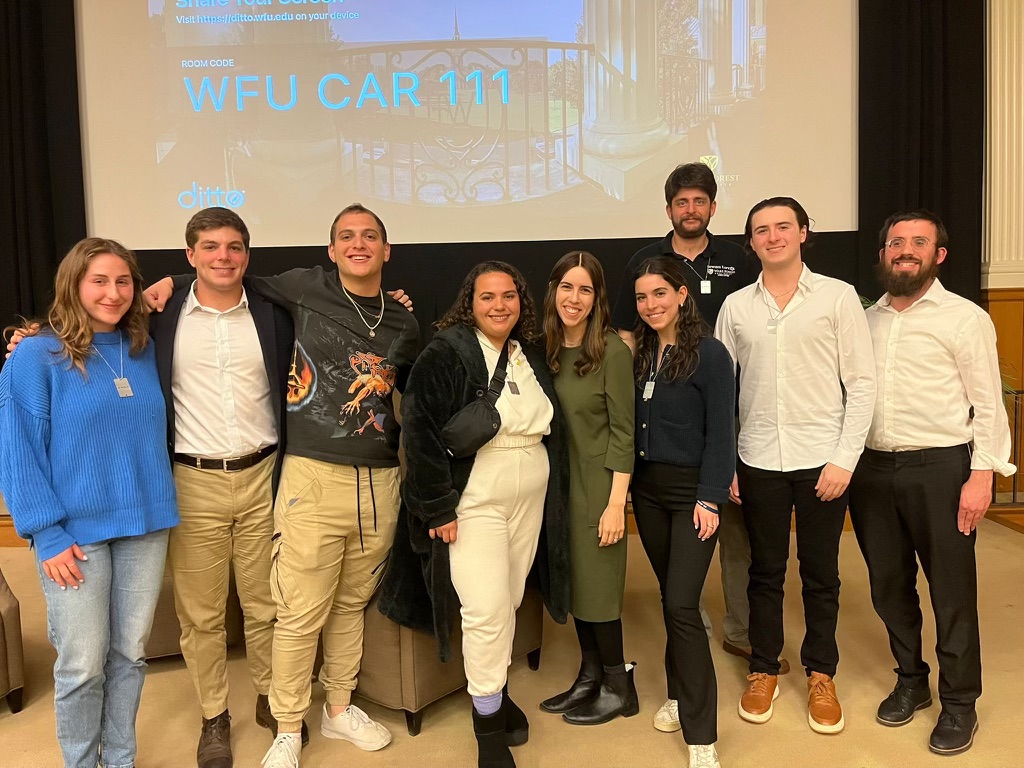Students might not think about it, but the choices they make in the Pit can have a huge impact on the environment.
According to the Office of Admissions, “Our motto, Pro Humanitate, is a calling to use our knowledge, talents and compassion to better the lives of others.” Part of this, many on campus believe, includes making sustainable and environmentally-friendly choices.
“How could we create a different strategy that is impactful?” asked Dedee Johnston, the chief sustainability officer, in response to sustainable choices being made in the Pit.
The New York Times reported that Americans ate 19 percent less beef between the years of 2005 and 2014. Those overall diet changes have reduced carbon emissions as much as if 57 million cars were removed from the road.
Small changes in American’s personal choices can have a huge environmental impact. On a smaller scale, the changes made by the Office of Sustainability can prompt Wake Forest students to make environmentally-friendly choices as well.
With all of the changes happening to eating options on campus, the Office of Sustainability focused on where it’s spending its money. One of its current initiatives is “less meat, better meat.” This means increasing the quantity of plant-based options and increasing the quality of meat products.
“We’re creating demand for what we do want, which is different than trying to shame someone for doing the thing we don’t want,” Johnston said.
Students are eating more sustainable food whether they know it or not. Skipping one eight-ounce steak is the equivalent of skipping 54 showers, in terms of how much water cattle farming and beef production use. Most people don’t think about that while they’re eating, but their food choices can have a significant impact on the evnvironment.
When asked if he would consider changing his eating habits, sophomore Gus Capatides wasn’t so affected by the environmental impact of beef.
“I like protein. And steak,” Capatides said.
However, there are students who have followed the national trend and decreased their beef consumption in recent years.
“I used to eat a lot of beef but have found substitutes for beef products that are healthier and better for the environment, for example, turkey burgers instead of beef burgers,” said Blair Huntley, a sophomore and event assistant in the Office of Sustainability. “The only way for mass production to stop and focus more on sustainable cow farming is to lower demand.”
For a lot of students, what they choose to eat is based first on what tastes good and then on what’s healthy for them.
“I eat less beef than before because as a society we are learning red meat isn’t as beneficial to our health as we thought,” sophomore Sam Lubell said.
Johnston said that eating options on campus are taking a similar approach to food as students do. They want students to have delicious options that make them feel good but are also sustainable.
“Your food should be delicious, but it should also fuel your body,” Johnston said.
In recent years, students and families have become more interested in nutrition and performance dining — food that prepares them for taking a test or even just for high energy levels throughout the day.
Through the Pro Humanitate spirit, the Office of Sustainability strives to provide the best possible food for the Wake Forest community, food which meets the demands of their customers yet minimizes the campus’ carbon footprint.
They focus on animal welfare when sourcing animal proteins. All of the chicken and almost all of the turkey is humanely-raised and handled. The beef comes from Brasstown Beef which is Global Animal Partnership (GAP)-certified distributor. GAP level three or higher guarantees animals are raised cage- or crate-free with no crowding, in an enriched environment, and with enhanced outdoor accesses.
Similarly, all of the seafood is Monterey Bay Aquarium Green-lighted, which certifies sustainable fisheries and sourcing. Pork is the only meat that isn’t sourced from a sustainably-certified distributor.
Whether or not students consider the environment when making food choices, the Office of Sustainability does. Recently, they’ve changed their focus from getting what’s available to getting the best quality of what students demand the most of. Students seem to be liking the changes, even if they don’t know the reasoning behind them.
“They’re talking about it in a way that makes me feel great about the direction we’re taking,” Johnston said.













